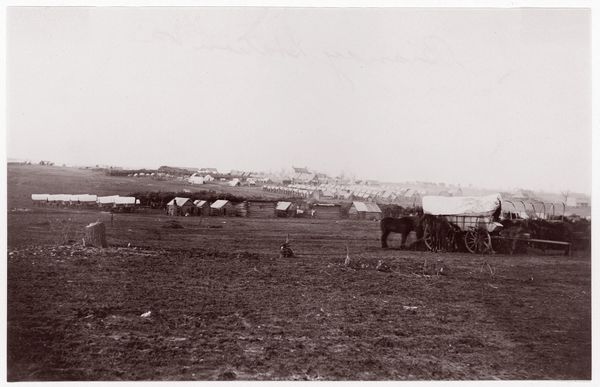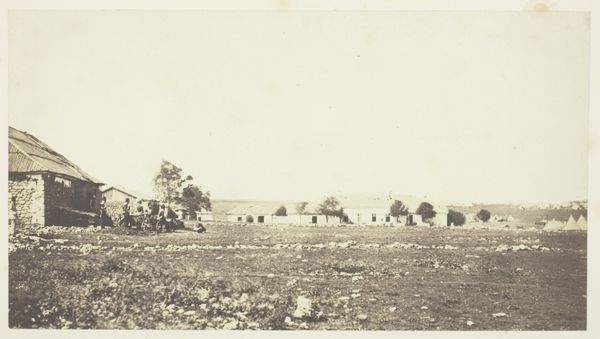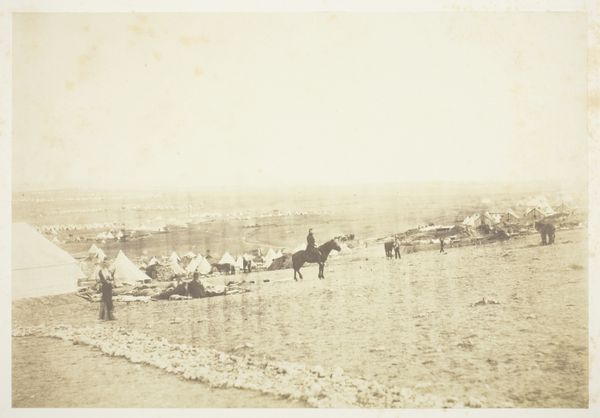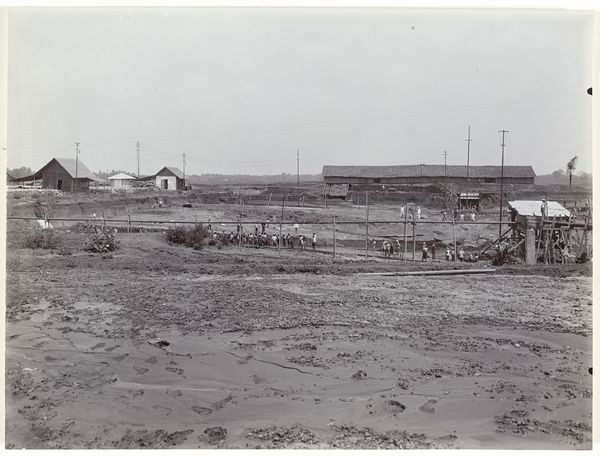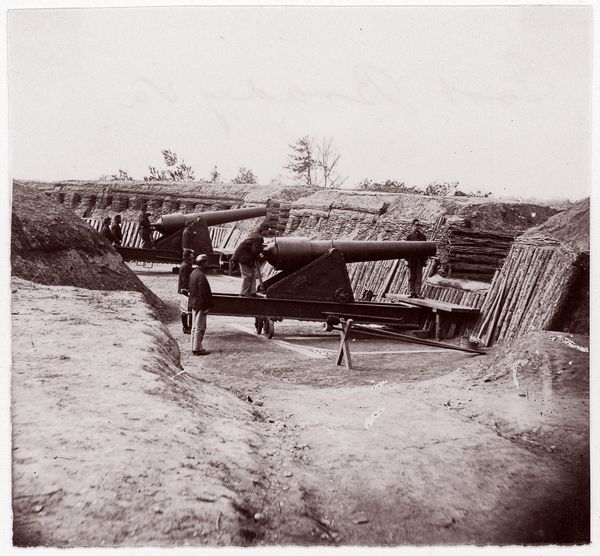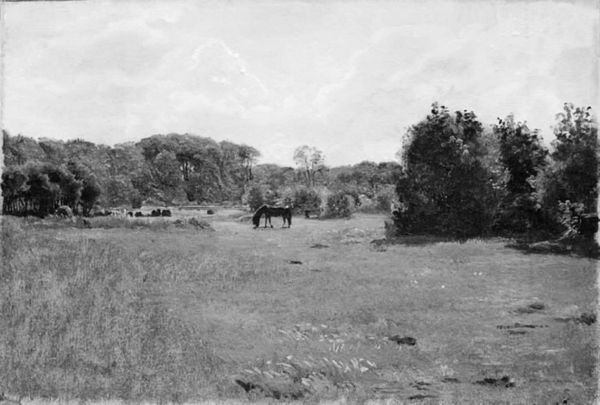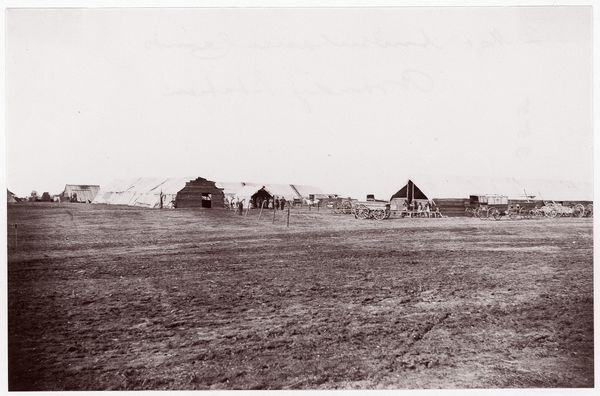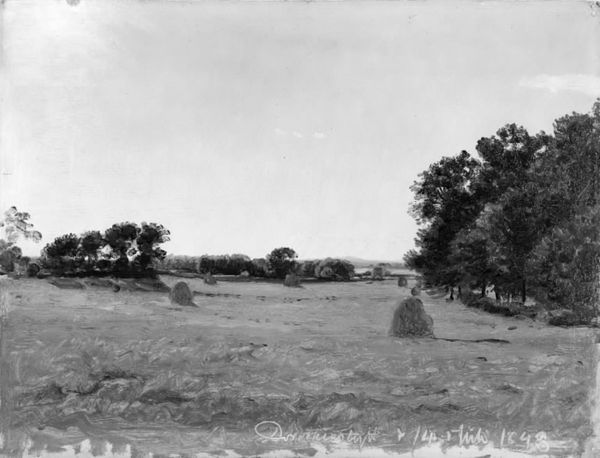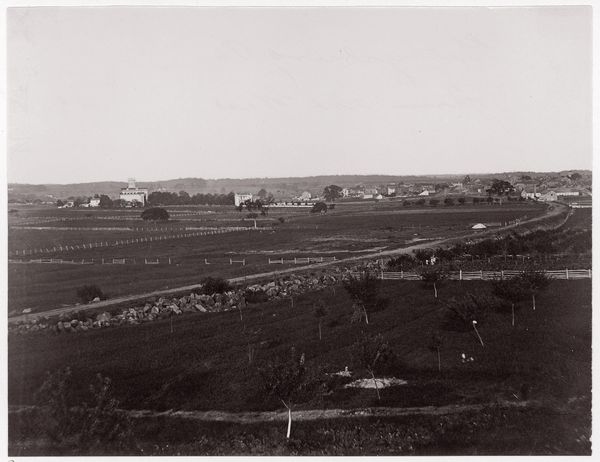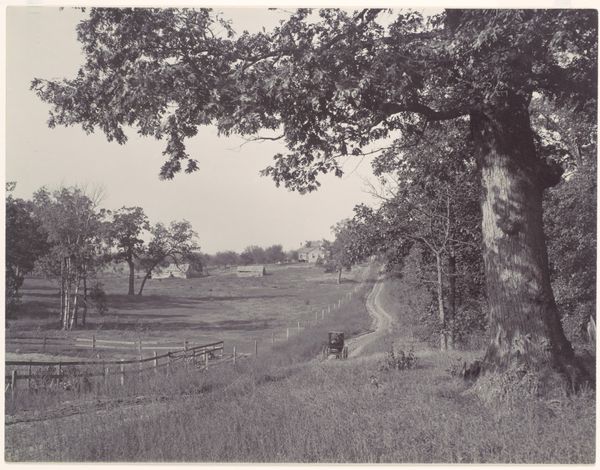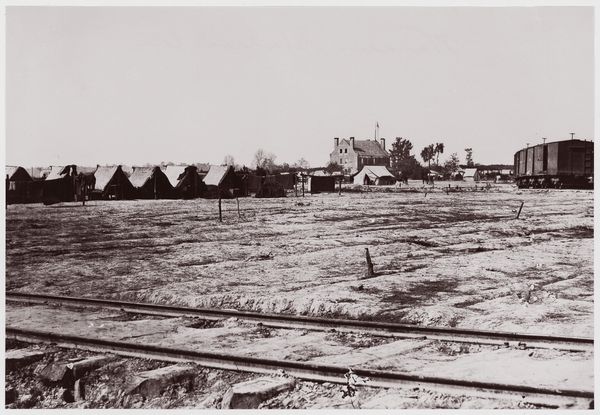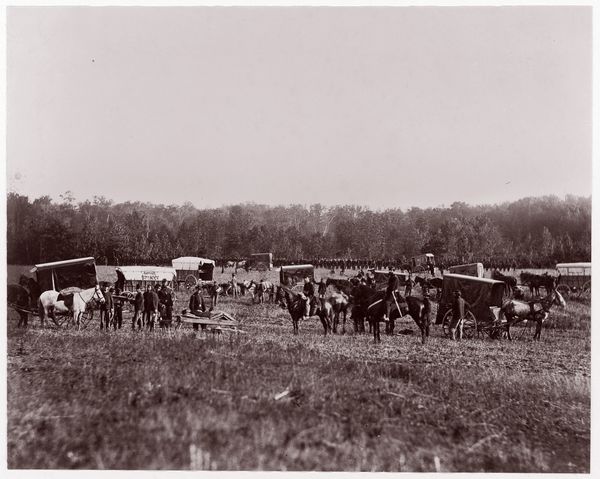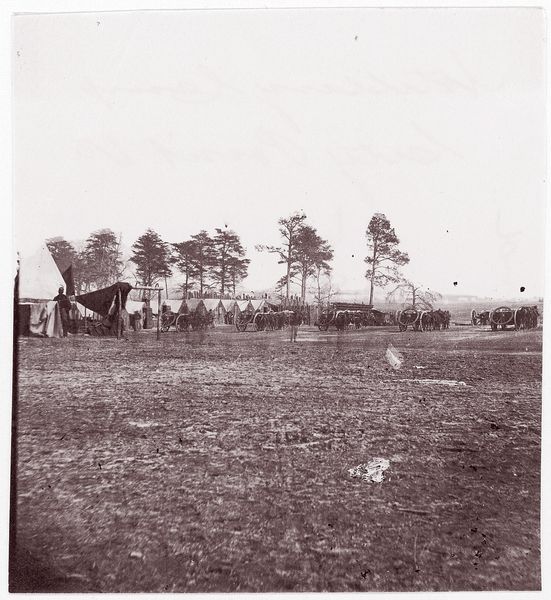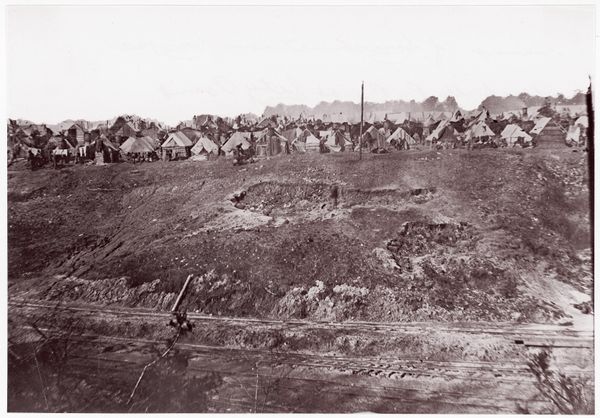![[The Lone Graves at Warren Station, in Front of Petersburg, Virginia] by Timothy O'Sullivan](/_next/image?url=https%3A%2F%2Fd2w8kbdekdi1gv.cloudfront.net%2FeyJidWNrZXQiOiAiYXJ0ZXJhLWltYWdlcy1idWNrZXQiLCAia2V5IjogImFydHdvcmtzL2YxOGFjMGVmLTJjMTItNGNjZC1iYjQ4LTZkMTg4N2IxMTE4MS9mMThhYzBlZi0yYzEyLTRjY2QtYmI0OC02ZDE4ODdiMTExODFfZnVsbC5qcGciLCAiZWRpdHMiOiB7InJlc2l6ZSI6IHsid2lkdGgiOiAxOTIwLCAiaGVpZ2h0IjogMTkyMCwgImZpdCI6ICJpbnNpZGUifX19&w=3840&q=75)
[The Lone Graves at Warren Station, in Front of Petersburg, Virginia] 1864
0:00
0:00
plein-air, photography, gelatin-silver-print
#
plein-air
#
war
#
landscape
#
outdoor photograph
#
nature
#
outdoor photography
#
photography
#
horse
#
gelatin-silver-print
#
monochrome photography
#
history-painting
#
realism
#
monochrome
Dimensions: 14.8 x 20.8 cm (5 13/16 x 8 3/16 in. )
Copyright: Public Domain
Curator: So, here we have Timothy O'Sullivan's 1864 gelatin silver print, “[The Lone Graves at Warren Station, in Front of Petersburg, Virginia]”. Editor: What a bleak and ghostly landscape. It feels like a stage set for a forgotten tragedy, all in somber monochrome. Curator: O'Sullivan captured this haunting scene amidst the ravages of the Civil War, using photography in a way that challenged history painting, bringing realism to a new level. Notice the lone tree on the left, stark against the ravaged landscape. The wagons slowly making their way. It makes you consider the material cost of such brutal conflicts. What materials went into constructing that wagon? Feeding those horses? The resources completely consumed and rerouted for destruction. Editor: And who labored to make them? The narrative isn’t just about soldiers and battles; it's a complex web of human and material exploitation. O'Sullivan used the "plein-air" technique to enhance the subject, further heightening the devastation of this desolate scene, don’t you think? Curator: I do. It's like O'Sullivan used his camera to sculpt emotion directly onto the gelatin, so to speak, focusing on the unvarnished truth that exists beyond the heroic mythologies of war. He stripped away the romance to show us something far more unsettling. Editor: It really challenges our notions of progress, doesn’t it? To think of the materials and labor dedicated to such a destructive enterprise. I find that the lack of any clear focal point, the utter bleakness, truly undermines any sense of heroic narrative. What is the long lasting effects of these moments captured, and translated on this Gelatin Silver Print? Curator: It's a powerful meditation on loss. And it echoes long after the last shot has been fired. The lone graves become symbols for not just the Civil War, but all wars. Editor: Absolutely, it's a necessary discomfort.
Comments
No comments
Be the first to comment and join the conversation on the ultimate creative platform.
